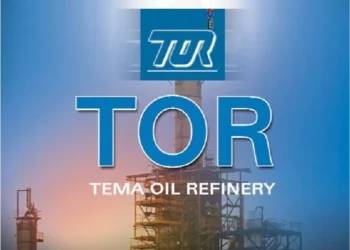The Institute for Energy Policy and Research has advocated for the establishment of two ministries out of the energy sector in a bid to ensure that there is clarity in direction and focus for the sector, whilst engendering proper management.
In a press statement released today, December 17, 2020, the Institute indicated that these two ministries are the Ministry of Power and the Ministry for Oil and Gas, adding that, the Ministry of Power would oversee the management of GRIDCo, Electricity Company of Ghana (ECG), NEDCo, VRA, the Independent Power Producers, Bui Authority, and the yet to be established Renewable Energy Authority.
The Ministry for Oil and Gas will on the other hand oversee Ghana National Petroleum Corporation, Petroleum Commission, the Tema Oil Refinery, BOST and National Petroleum Authority (NPA).
It noted that, the energy sector had outgrown its current management by a single ministry, alluding to past years when the then Ministry of Mines and Energy was split to focus special attention on the energy sector.
“The growth in the sector has made it impossible for a single Ministry to manage the entire energy sector. In the 1990s, the ministry was called Ministry of Mines and Energy. This Ministry was then split to provide focus for the energy sector and manage growth. We strongly believe that the time has come for two ministries; Ministry of Power and Ministry for Oil and Gas to properly manage this sector.”
The statement further emphasized the need for much attention and resources to be committed to the sector in fulfilment of the Energy Sector Recovery Programme which specifies that if the power sector’s indebtedness is not addressed, its debt could reach $12.5 billion by 2023, being about 18.7 percent of GDP.
It is instructive to also note that, this same sentiment was shared in November by Mr. Kwadwo Poku, the Executive Director of Small Hydro Development Company Ltd., during an Energy Dialogue held at the Labadi Beach Hotel.

He intimated that, the Ministry of Energy had outgrown the people managing it, thus a split would allow the various challenges affecting the energy sector to be addressed.
“The Ministry of Power is very key, reason being that there is a lot of challenges in that area. We all came out of Dumsor and there are remnant problems that still exist. The key fundamental challenge is indebtedness.”
The State of the Power Sub-Sector
“The country has a total dependable power of 4,657 megawatts of power as of June 2020 and a peak demand of 2,957megawatts. The peak demand is growing at approximately 10 percent year-on-year. The ongoing industrial policy 1D1F and the high gold prices will make the local mining companies increase the demand for electricity.”
“If the post COVID-19 economic environment does not affect our local industries as in Europe and America, the total peak demand will reach around 4329MW by 2024. This means our dependable capacity should grow to about 5,000MW by 2024.”
With utmost clarity, the statement explained that “the critical decision by the government that will affect the growth of Ghana’s generating capacity is the issue of Take or Pay and Take and Pay.”
Again, going into 2021, the statement pointed out that the government must be clear on how the new policy of Take and Pay will be implemented for the existing Power Purchase Agreements (PPA) which use the Take or Pay.
The State of Oil and Gas sub-sector
According to the statement, there are imminent challenges that the oil and gas sub-sector would be faced with in 2021, citing that the global economy is forecasted to slow down post-COVID-19 until 2022 when it would record a fully-fledged recovery.
According to Moody’s Investor Services, global crude oil prices are expected to be around $40-$45 per barrel in 2021 and in the medium term range from $45-$65 per barrel. However, Moody’s asserted that for companies to have high profit margins, prices must range from $50-$55 in the short term.
READ ALSO: Indebtedness To Be Solved If Energy And Petroleum Ministry Is Split- Kwadwo Poku





















